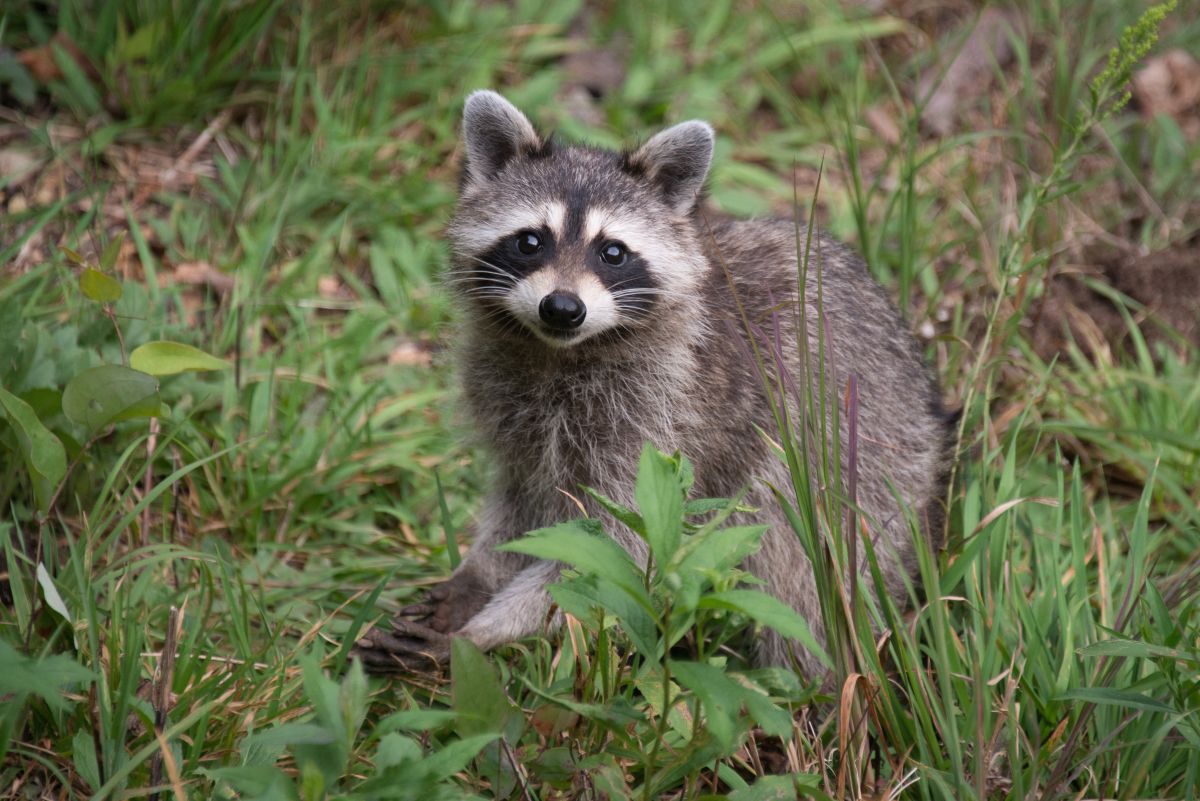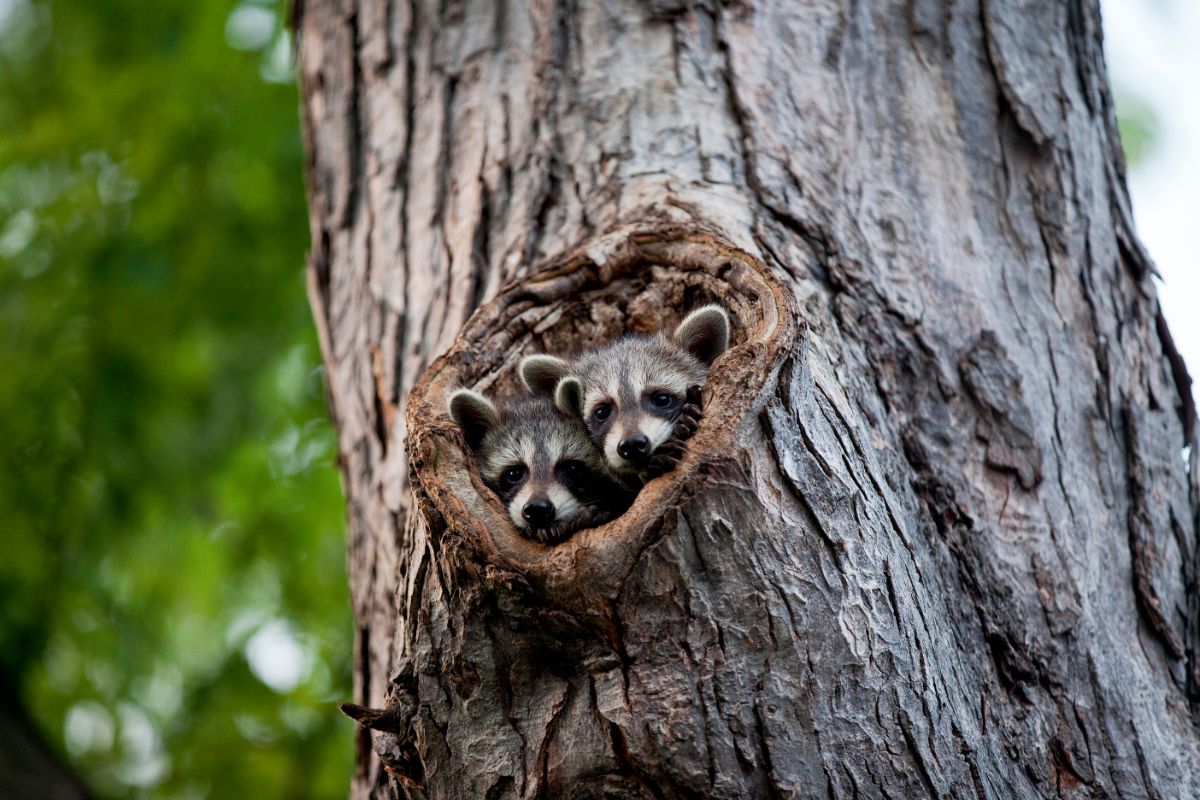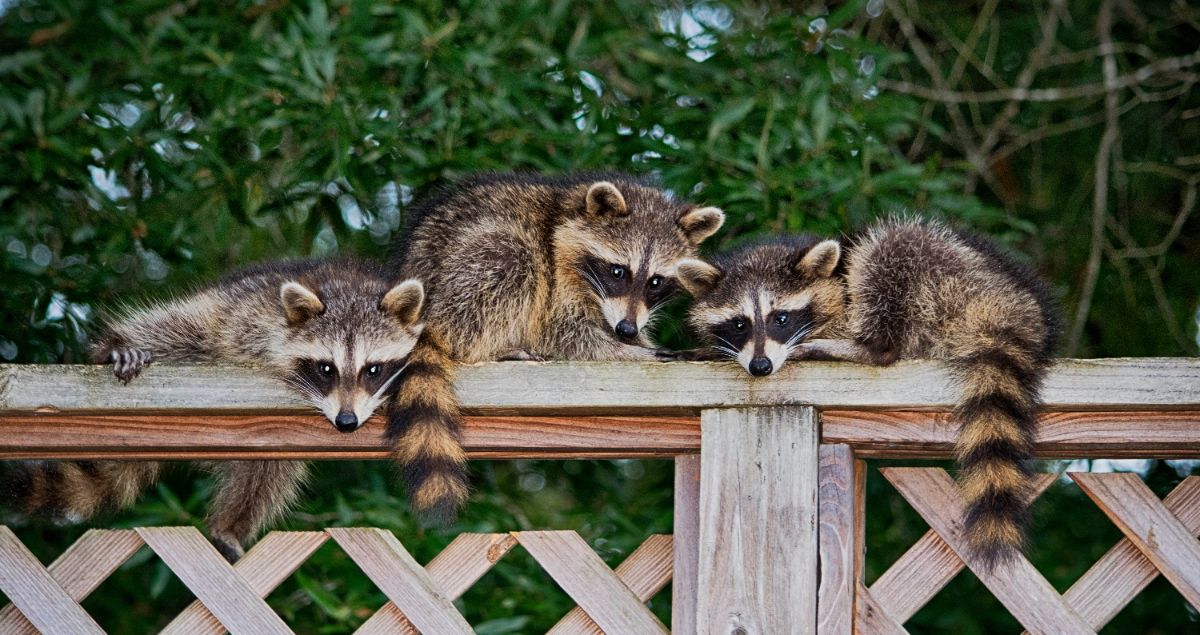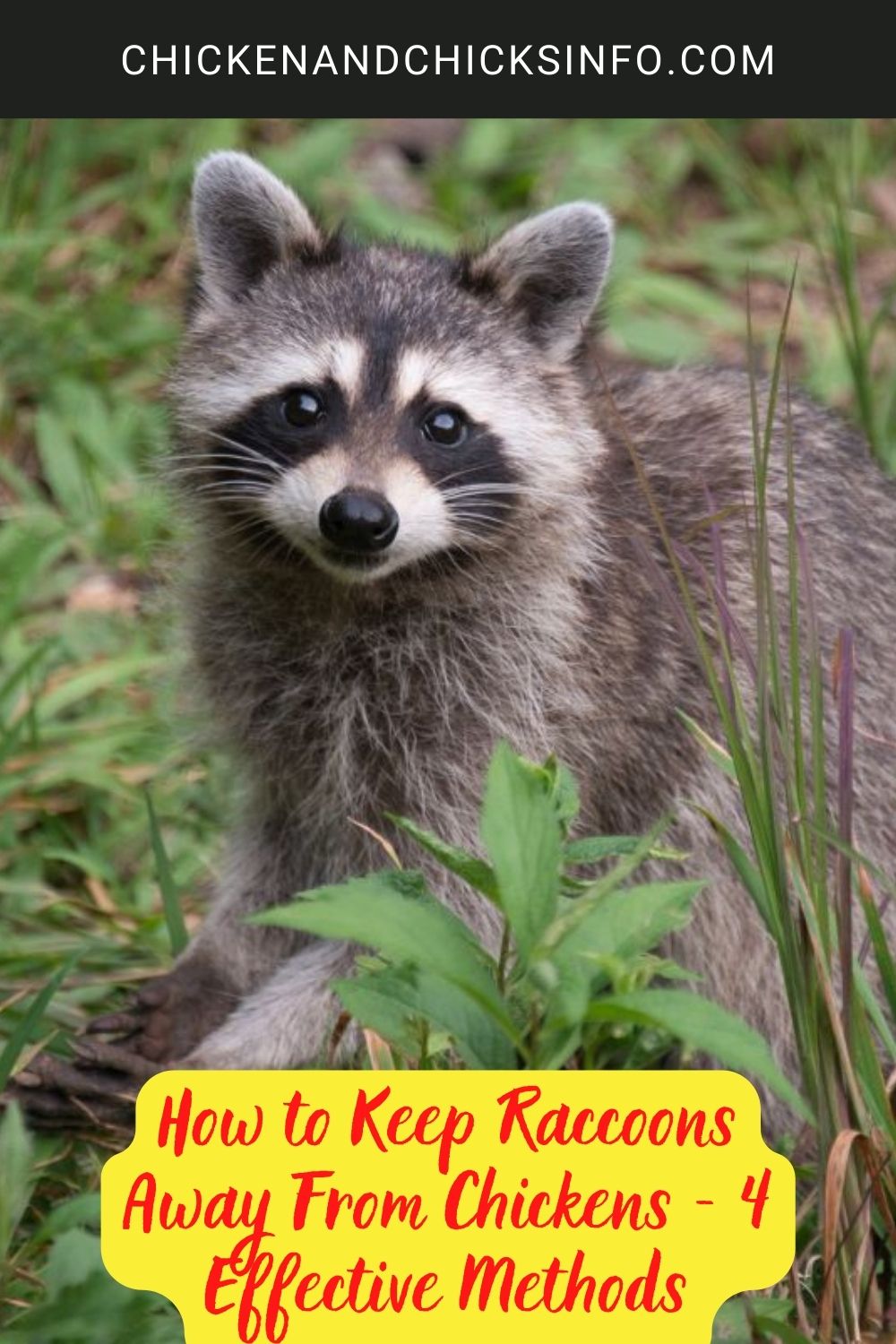
If you keep chickens, it's important to be aware of the dangers that raccoons present.
These predators can quickly kill your flock if they are not kept away.
In this post, I'm going to explain how to keep raccoons away from chickens so you can sleep safe knowing your chickens are also sleeping safely!
Jump to:
How to Keep Raccoons Away From Chickens - 4 Methods
Here are four of the best methods you can use to keep raccoons away from your chickens.
Install a Physical Barrier
The best way to keep all predators at bay is to make it impossible for them to get at your chickens - although this is sometimes easier said than done.
However, this could be something as simple as a fence around your coop or chicken run.
Raccoons are crafty animals, and much to the surprise of many, they're pretty good at digging.
So you should also consider securing durable wire mesh or hardware cloth below ground level to stop them from burrowing under your fence.
Make sure the fence is at least six feet high, too. This will ensure that there is no way for the raccoons to climb over it.
Related - Will raccoons attack chickens during the day?
Make Your Property Less Attractive to Raccoons

Raccoons are typically attracted to food, not chickens.
So, if you remove all the food sources from your property, there is a chance they might not approach.
This doesn't just mean your chicken's feeders, it also means locking your trash cans, covering your compost piles, and removing anything else that might smell like food!
Use Scare Tactics
There are a number of things you can do to scare raccoons away, including using predator decoys, loud noises, and flashing lights.
Some people have had success with using dogs as a scare tactic, but I wouldn't recommend this unless you have a dog that is always outside and is always willing to protect your chickens.
And even then, there's no guarantee that the raccoons won't come back when the dog isn't around.
Scare tactics have mixed results. Personally, I'd act off recommendations from people who have had success.
Trapping and Removal
If all else fails, you may have to trap and remove the raccoons from your property.
This should only be done as a last resort, as it can be dangerous and can take some time to remove all the raccoons from your area.
If you do decide to trap and remove raccoons, I recommend contacting a professional to do so.
No matter which method you choose, it's important to stay vigilant.
Raccoons are smart animals and they will quickly learn how to get around any obstacle you put in their way.
What Smells Will Keep Raccoons Away?

Sometimes creating a stink is the perfect defense against raccoons.
By this I mean, there are a few smells that raccoons don't like and that can be used as a deterrent.
One of the most effective odors is ammonia. A smell that chicken owners are all too familiar with, and I'm sure most of us would rather not smell in our yards.
But, if you're having trouble with raccoons getting into your trash cans, you can try sprinkling some ammonia around the lid.
Another smell that raccoons don't like - and one that is much easier on our noses - is peppermint.
You can either buy peppermint oil or make your own by boiling fresh mint leaves in water.
Once it's cooled, strain the leaves and mix the water with white vinegar. Store in a spray bottle and use as needed.
I've also heard people say that a concoction of garlic and onions will keep raccoons away, but I haven't tried this myself.
I can believe it though, I can't think of many combinations that are going to create a more foul, lingering odor than garlic and onion!
Do remember though, raccoons are smart animals and they will eventually get used to any smell you put out.
I've read some entertaining stories of people trying to defend their property against raccoons, only to find they have to keep mixing up their defense methods.
So, be prepared to keep changing up the smells you're using if you're to keep them at bay.
Related - Why do raccoons attack chickens?
Are Chickens Afraid of Raccoons?
There is some debate over whether or not chickens are afraid of raccoons.
Some people say that chickens will run away when they see a raccoon, while others say the opposite is true and that the chickens will actually approach the raccoon.
I've seen both behaviors, so it's possible that it comes down to the individual hen.
If you have a rooster in your flock, that's a different story.
A rooster's main role is to defend his flock, and they will certainly make a lot of noise or show aggression to a raccoon.
It's your hens that you need to be most concerned about. Hens and their eggs are seen as prey to various predators, from small rodents stealing eggs to larger animals attacking hens.
In Summary
There are a number of things you can do to keep raccoons away from your chickens, but it's important to remember that they are smart animals.
Raccoons will often find a way around basic obstacles you put in their way, they will adapt, and can even figure out basic sliding locks sometimes!
The best defense against raccoons is a combination of methods, so keep changing up what you're doing to make sure you're staying one step ahead of them.





